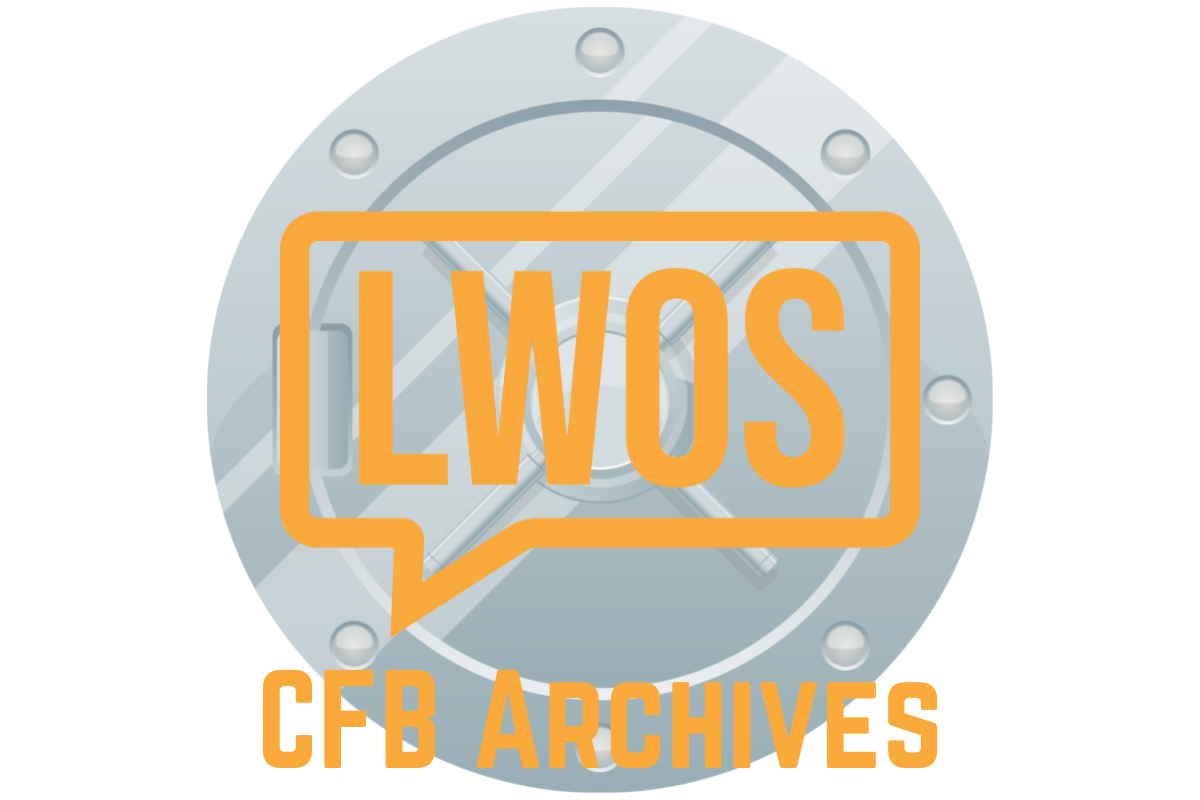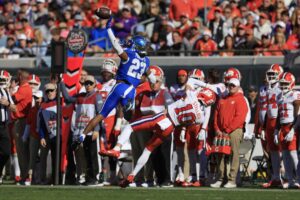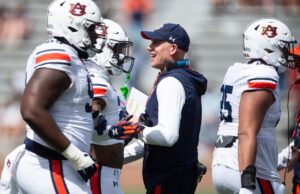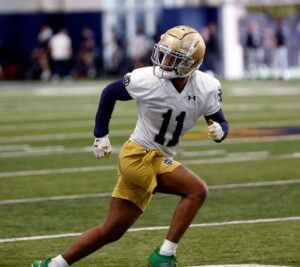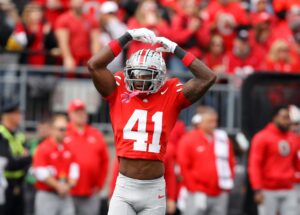Wednesday morning the NCAA released a report about six months in the making. It gave a vague overview of where the over sized governing body for college sports sees itself going with regards to athletes owning their rights for name, image, and licensing, or NIL.
Typical of the NCAA, it is slogging into a topic that could have and should have been resolved years ago. But atypical of the organization, it is moving faster than it usually does. It is being held at proverbial gunpoint by several states that are ready to enact their own rules if the NCAA does not. And then we heard from the group least likely to fix the problem, but the one most feeling the need to be heard, the United States Congress. The NCAA and Congress; that certainly makes for a difficult coupling.
The NCAA And Congress; A Bad Marriage
Let’s revisit the issue at the crux of the debate; an athlete’s right to earn money from those wanting to use their name, image or likeness. The NCAA and individual schools have been abusing the privilege for years. They make money off the Name/Image/Likeness, (NIL), of athletes to promote football and basketball games, TV broadcasts, and more. In their eyes, the players were compensated with their scholarship. That never accounted for the idea that tens of thousands of non-athletes across the country were also on scholarship but maintained ownership of the NIL rights. If someone on a music scholarship at “Big Tech” had someone who wanted to use their image for a project, they had the right to expect payment in return. Athletes were barred from that under the antiquated guise of “amateurism.”

States Pushing The Agenda
Last year, several states including Florida, South Carolina, and California introduced legislation that allowed their collegiate athletes to own their NIL rights, the same as anyone else in the state. If the NCAA was not going to address the issue, the states were. There was going to be chaos throughout the land as athletes in different states would be held to different standards. The NCAA responded with the ludicrous idea that it would ban student-athletes from those schools. And the schools as a whole, would be banned from NCAA sanctioned post-season events. As if.
In reality, the NCAA responded in the only way it could. It formed a committee to address the issue with the specific end needing to be loosening the rules for athletes. The Federal and State Legislation Working Group was formed to delve into the topic. In early April, Kevin Lennon, Vice President of NCAA Division I athletics, put out an update that amounted to not much insight. The working committee on the topic was indeed working, and at some point in the near future they would have recommendations for the governing board of the NCAA. Nothing could have been more typical NCAA.
Five weeks later the working group had presented its recommendations, they had been reviewed by the NCAA organization as a whole. Press releases on the report were prepared and a media conference call was readied.
A Plan; Sort Of
The result? A vague broad brush of theories with no real specifics for implementation. Now, this is typical of the NCAA so to go into the release expecting anything else was naïve. The NCAA doesn’t want to be here discussing this in the first place, so to get any forward movement from them was different.
In overly simplified terms, the NCAA is going to allow student athletes to be compensated by non-NCAA entities for use of their name, image, and likeness. In other words, college athletes can now be paid for someone to use them as a “spokesmodel” just like any other student who goes to their school. The challenge now comes in the rules and restrictions as to how this will happen.
The athletes can hire an agent to negotiate these deals. But the agent’s activity is specifically limited to those activities. No working on their future NFL deal for them. The money may not flow through the school in any capacity. That would be the school paying them for their work and ruin the theory of amateurism the NCAA demands. The athletes may not sign a deal that is in contrast or conflict with a school or NCAA sponsor. If you are a football player at a Nike school, there will be no cutting a deal with Adidas. If the NCAA were to have a sponsorship with Pepsi, there will be no Coca-Cola deal for you. They also cannot take endorsement money for alcohol, tobacco or gambling companies. Still it left open hundreds of categories and possibilities.
There will be TBD caps on how much someone can make in any year, which seems counter intuitive to the entire exercise. And the rules apply to all athletes at all schools. If there is a softball player in Norman, Oklahoma who has the interest of a regional or local advertiser, they can be paid just as the starting quarterback for the Sooners can be from perhaps a larger company.
There are rules and regulations regarding boosters and their place in the new world order, and they are murky at best, just as their current status is.
S.O.S. To Congress
But, then there was a part of the report that got buried in the bigger picture. The NCAA repeatedly addressed the need to maintain amateurism in good standing, as if it were real. But then they throw disorder in by saying they must be, “Ensuring federal preemption over state name, image, and likeness laws.” The NCAA was, in effect, saying, “If we are going to do this, we need to make sure it is the law of the land for college athletics and preempts any individual state laws.” The goal of course is to make sure there are not 50 different laws for the athletes of one national governing body. The NCAA took their “wish list” one step further. They expressed the need to establish, “A safe harbor for the Association to provide protection against lawsuits filed for name, image and likeness rules.”
In other words, they want their rules to govern the college athletics nation. Yet they need protection to make sure a state, a school, or an athlete does not sue them for their management of the new system. And where does that protection come from? The United States government.
Asking for the opinions of congress guarantees that this becomes a mosh pit. The first in line was Donna Shalala. The irony runs thick. The Democrat from Florida’s 27th Congressional District was the president at the University of Miami while large donor checks were coming in from scandal-ridden booster Nevin Shapiro. Now she is demanding more from the NCAA in the NIL issue. “My initial reaction is it’s a PR document,” Shalala told Sports Illustrated. “Why are we paying all these people at the NCAA if they can’t give us more details than this?”

Marsha Blackburn, a Republican from Tennessee’s 7th Congressional District concurred. “They are tentative and have shown they can’t come through with a requisite list of standards. They need to realize that the shot clock has run out on them,” she told Sport Illustrated.
Congress has the ability to usurp the NCAA. They can create nationwide legislation to avoid the potential mayhem of the NCAA trying to govern in the face of numerous and varied state laws regarding the issue. The NCAA would probably prefer to have the burden taken off their plate. But there is no sense as to whether there is a legitimate congressional appetite for this.
Timing Is Everything
The issue is now a play clock of sorts. The NCAA has moved faster on this major revolutionary issue than at any time in recent history. But is it fast enough? The Board of Governors has sent their plans, such as they are in the current summarized state, to the commissioners of the different conferences in Division I, II, and III. They will review, along with member athletic departments and have their issues for changes. The NCAA wants to have this enacted in time for the 2021-2022 academic year. However, there are the states that we mentioned before. Many of them have their own pending legislation to be voted on well before then, and enacted sooner as well.
Individual states doing their own governing rules for college athletics in their state is exactly why a national governing body like the NCAA was created; and exactly the reason the NCAA could now very well be in over its head.


